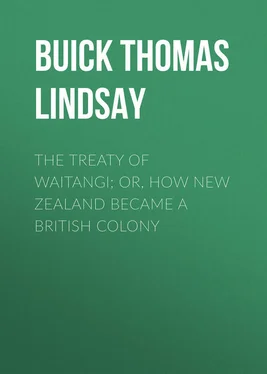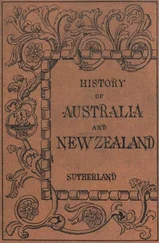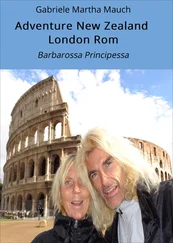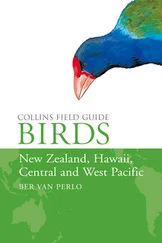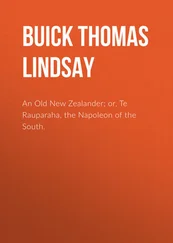Thomas Buick - The Treaty of Waitangi; or, how New Zealand became a British Colony
Здесь есть возможность читать онлайн «Thomas Buick - The Treaty of Waitangi; or, how New Zealand became a British Colony» — ознакомительный отрывок электронной книги совершенно бесплатно, а после прочтения отрывка купить полную версию. В некоторых случаях можно слушать аудио, скачать через торрент в формате fb2 и присутствует краткое содержание. Жанр: foreign_antique, foreign_prose, на английском языке. Описание произведения, (предисловие) а так же отзывы посетителей доступны на портале библиотеки ЛибКат.
- Название:The Treaty of Waitangi; or, how New Zealand became a British Colony
- Автор:
- Жанр:
- Год:неизвестен
- ISBN:нет данных
- Рейтинг книги:5 / 5. Голосов: 1
-
Избранное:Добавить в избранное
- Отзывы:
-
Ваша оценка:
- 100
- 1
- 2
- 3
- 4
- 5
The Treaty of Waitangi; or, how New Zealand became a British Colony: краткое содержание, описание и аннотация
Предлагаем к чтению аннотацию, описание, краткое содержание или предисловие (зависит от того, что написал сам автор книги «The Treaty of Waitangi; or, how New Zealand became a British Colony»). Если вы не нашли необходимую информацию о книге — напишите в комментариях, мы постараемся отыскать её.
The Treaty of Waitangi; or, how New Zealand became a British Colony — читать онлайн ознакомительный отрывок
Ниже представлен текст книги, разбитый по страницам. Система сохранения места последней прочитанной страницы, позволяет с удобством читать онлайн бесплатно книгу «The Treaty of Waitangi; or, how New Zealand became a British Colony», без необходимости каждый раз заново искать на чём Вы остановились. Поставьте закладку, и сможете в любой момент перейти на страницу, на которой закончили чтение.
Интервал:
Закладка:
11
The Bill was not passed, because it was found that Parliament was legislating in a "foreign country," and this it has no power to do.
12
Mr. Busby's difficulties in this connection were considerably increased by the fact that when British subjects were accused they frequently sheltered themselves under the American flag, saying, "We are Americans, you have no right to interfere with us." – Captain Fitzroy.
13
"After ardent spirits were introduced in the neighbourhood of Hokianga the Christian natives themselves became so sensible of the evils resulting from the use of them, that under the influence of the Missionaries the chiefs assembled and agreed to certain regulations, the effect of which was to prohibit the introduction and sale of ardent spirits. Those regulations received the sanction of the Governor of New South Wales, and were for a time partially carried into effect. Our Missionaries have transmitted a copy of the resolutions adopted at a meeting of the natives at Hokianga for the formation of a Temperance Society. Those resolutions were signed by fifteen native chiefs. One chief who was present declined for a time, but at length he agreed, and also signed them. Another chief remarked that it would be desirable that wine and porter should also be prohibited, for if they were allowed the English would say when the rum casks came that they were wine and porter, and by that means spirits would continue to be smuggled into the river. The later accounts give us reason to fear that notwithstanding these regulations spirits continued to be introduced there in defiance of the laws made by the native chiefs." – Rev. Dr. Beecham before Committee of House of Lords.
14
The British Admiralty agreed to respect and protect the New Zealand ships' registers after the National flag had been hoisted.
15
Korero = talk, debate, discussion.
16
Dr. Marshall, surgeon of H.M.S. Alligator , mentions that during his visit to the district he had become interested in a chief named Hau, who, prior to the voting, asked the Doctor for his opinion, on the designs. The Doctor favoured the one ultimately chosen, and Hau "having discovered how my taste lay, paid me the compliment of adopting it, and canvassed others for their votes also." This influence in all probability decided the election. After cession of sovereignty to the Queen in 1840 this flag was of course superseded by the Union Jack as a National ensign. It was then adopted by the Shaw Savill & Albion Shipping Company, and is now flown by them as their house flag.
17
Kororirori was a mixture of flour and water, sweetened with sugar, of which the natives had become very fond. While the feast was in progress word came that Pomare had arrived at the Bay at the head of a large armed party. Mr. Williams was sent to enquire why he had brought arms to a peaceable gathering? He replied, "It is New Zealand custom," and then added, "The Rangatira from the warships have their swords, and we ought not for shame to be without our guns," an observation which left little room for an effective rejoinder. Pomare, who was a great stickler for etiquette, was offended because he thought he had not been properly invited, and took this method of showing his displeasure. He was however soon placated by the Missionary.
18
Vide his despatch of November 21, 1834.
19
The Baron has been described as a crotchety enthusiast rather than a knavish schemer.
20
Nēne gave him 5000 acres, which was subsequently reduced by quarrels and quibbles to 1000 acres.
21
Sir George Gipps, Governor of New South Wales, in succession to Sir Richard Bourke, in a despatch dated August 1840, speaks of the Declaration, as entirely a measure of Mr. Busby's concoction, and designates it "a silly as well as an unauthorised act – a paper pellet fired off at the Baron de Thierry."
22
The chiefs who signed this document were thoroughly representative of the tribes residing between the North Cape and the latitude of the River Thames.
23
Dr. Jameson concludes his unalluring picture, by the statement: "It is to the Missionary labour only that we can justly attribute the abolition of infanticide, polygamy, and the atrocities of native warfare which have disappeared before the dawn of Christianity."
24
This claim is still the subject of negotiation between the British and United States Governments.
25
Probably the Wentworth Purchase.
26
The deed confirming this transaction is now in the Hocken Collection at Dunedin.
27
"The Missionaries have been successful, but I think a greater effect might be given to them if their minds were relieved from those secular things which press upon them on behalf of their children. If they could devote their lives to the service of Christianity instead of trying to better the condition of their own children. At present they are cultivating their land. To use the words of the Rev. Henry Williams – They are just holding on for their children, seeing no other prospect for them than the cultivation of those lands. They cannot send them home to England, for that would be too expensive; New South Wales would not be desirable for them, and this is their only chance." – Evidence of Mr. John Flatt (formerly a catechist of the C.M.S.) before a Parliamentary Committee.
28
This war, it is said, arose through some one on board the Roslyn Castle carrying off a native woman of high rank to sea. Her friends at Kawakawa accused the people of Kororareka of killing and eating her in satisfaction of an old feud. This they denied, but a war ensued, 1500 fighting men being engaged, the war continuing for several months, eighty being killed.
29
In 1821 Mr. Henry Goulburn, by direction of Earl Bathurst, informed R. M. Sugden that his Lordship "did not feel he had any power of approving any particular encouragement to the establishment of a colony in New Zealand." In 1822 Earl Bathurst informed Thomas England and Messrs. Taylor and Upton that no encouragement was given by the Government to settlers to proceed to New Zealand. In the same year Mr. John Thomson, A.M., Edinburgh, offered to found a colony of 50 sober men, 100 Sepoys, and 100 convicts, as "the inhabitants of New Zealand are just in that state of civilisation to be made useful." In November 1823 Lieutenant-Colonel Nicolls, an ex-Indian officer, made a proposal to Earl Bathurst to establish a colony of military pensioners. In the following month Baron de Thierry's scheme was brought under the notice of the Government. The year 1825 saw the first New Zealand Company established. Colonel R. Torrens, who afterwards did such good work in South Australia, applied in 1826 for the command of a military force in New Zealand, and so enable him to "make preliminary arrangements which would facilitate the future colonisation of these islands upon sound economical principles."
30
It was said that at one period of its existence the New Zealand Association could command 42 votes in the House of Commons.
31
Lord Glenelg did not on this occasion urge as an objection that New Zealand was not a part of the British Empire.
32
After the Association was formed into a Company Lord Howick became one of its most ardent supporters.
Читать дальшеИнтервал:
Закладка:
Похожие книги на «The Treaty of Waitangi; or, how New Zealand became a British Colony»
Представляем Вашему вниманию похожие книги на «The Treaty of Waitangi; or, how New Zealand became a British Colony» списком для выбора. Мы отобрали схожую по названию и смыслу литературу в надежде предоставить читателям больше вариантов отыскать новые, интересные, ещё непрочитанные произведения.
Обсуждение, отзывы о книге «The Treaty of Waitangi; or, how New Zealand became a British Colony» и просто собственные мнения читателей. Оставьте ваши комментарии, напишите, что Вы думаете о произведении, его смысле или главных героях. Укажите что конкретно понравилось, а что нет, и почему Вы так считаете.
